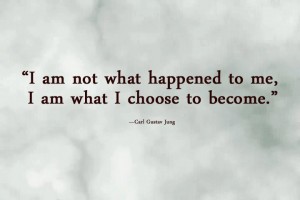I think Clark Leonard Hull informs us mostly about the fall and creation. His life circumstances alone are enough to inform us of the fall, additionally though his work informs us on his thoughts of mankind and human concepts of learning. Hull was born to “an uneducated father and quiet mother” (412). When he was younger, he contracted typhoid fever and felt that his memory suffered as a result. Not much later in life, at the age of 24, Hull contracted poliomyelitis, which left him forever partially paralyzed. He had to walk with crutches or a cane the remainder of his life. As far as physical conditions go, Hull also suffered two heart attacks in his lifetime, one which resulted in his death. A lot of Hull’s life circumstances remind me of down falls of humans — our imperfections, weaknesses, and our inability to control all that is around us. I find it interesting also that at first Hull was uninterested in psychology. He explains why he chose the field:
[I wanted] an occupation in a field allied to philosophy in the sense of involving theory: one which was new enough to permit rapid growth so that a young man would not need to wait for his predecessors to die before his work could find recognition, and one which would provide an opportunity to design and work with automatic apparatus. Psychology seemed to satisfy this unique set of requirements.
Hull’s life and career remind me of how fragile and needy the human is. Hull had physical impairments that affected his entire life and function. He was raised by uneducated parents. He wanted recognition and attention. He wanted to enter into a field that gave him control, power, and the opportunity to make a lasting differences. This reminds me so much of the fall because although Hull was examining human functioning in an effort to better understand people, it seems to me that he was completing this kind of work for attention and out of selfish desires.
The reason I also see Hull as a man who informs us about creation is because much of his work was focused on learning processes and the creation of machines that could learn and think (413). Hull’s focus on more systematically and mechanically identifying behavior helps me understand his perspective on humans and the way we were created. He believed that the adaptive behaviors in humans could be explained in terms of mechanistic principles. Hull has sprinkles of Darwinian tradition as he believes that the mechanistic principles (drive of a human) and adaptive behaviors are contributors to an organism’s survival (413). An interesting comment about his more mechanical approach to human behavior is that it worked for Hull. He had a desire to be known and enter into a field that would give him recognition. And recognition he did find. In 1936 he served as the 44th president of the APA (413). Hull’s Principles of Behavior were referenced 105 times between 1949 and 1952 in the Journal of Abnormal and Social Psychology. The next most commonly cited work had only 25 references. In 1945 Hull was also awarded the Warren Medal by the Society of Experimental Psychologists. Hull also had many well-known disciples and students that continued making extensions and modifications on Hull’s theory (415-416).


